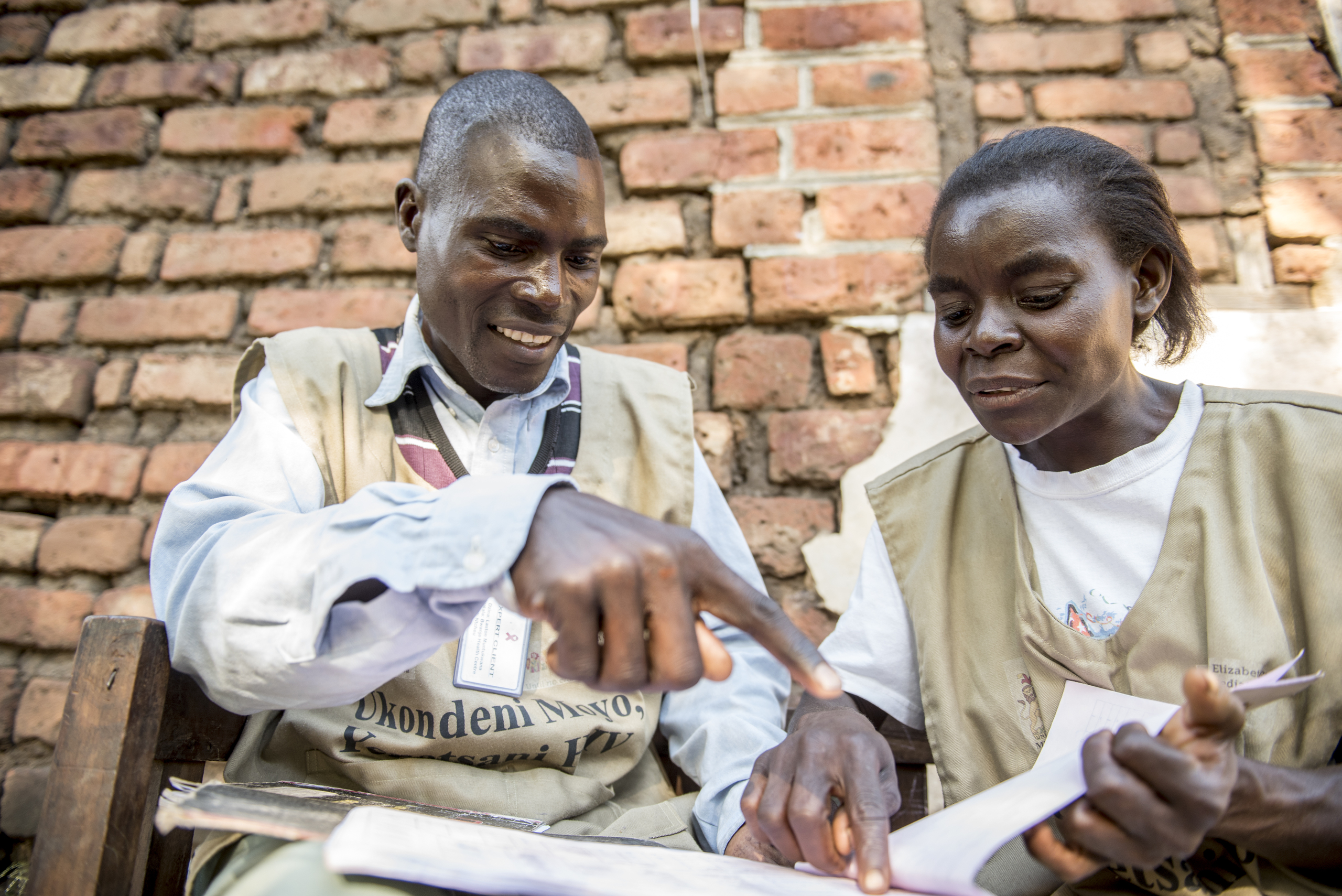As a boy, Hannock Matupi felt a calling to help disadvantaged people—which eventually motivated him to become a clinician. After several years of work in the public health sector, Hannock came to see how gaps in service frustrated and even harmed his patients.
Failing equipment, insufficient infrastructure, drug shortages, and dwindling numbers of medical personnel are among the problems affecting the quality of healthcare services in most public health facilities in Malawi.
Working in the public health sector makes me see these problems up close. Occasionally patients complain about poor services, and it is our responsibility to help address these challenges… says Hannock, who now works as the antiretroviral treatment (ART) coordinator at Rumphi District Hospital in northern Malawi
Hannock was pleased when Malawi’s Ministry of Health and implementing partners developed a plan to prioritize quality improvement (QI)—an approach aimed at systematically improving the care delivered to patients. He has been trained in QI by the Elizabeth Glaser Pediatric AIDS Foundation (EGPAF)—which has been working with the Malawi Ministry of Health on quality management initiatives since 2014.

In low-resource countries like Malawi, the problem-solving approach of QI helps health workers find out-of-the-box solutions to common problems.
For instance, through the application of QI, many clinics have enlisted expert clients to help health workers track and counsel clients on HIV services. These community volunteers now provide a vital link between the community and the health center, ensuring that more people are tested for HIV and remain on treatment. In Rumphi—where EGPAF has been implementing QI since September 2017—91 percent of HIV-positive individuals were linked to care through expert clients.
Early infant diagnosis (EID) is another QI project implemented in EGPAF-supported districts. EID aims to identify children infected with HIV early and initiate them on treatment. Through this project, EGPAF Malawi has so far prevented the transmission of HIV to more than 11,500 babies.
“This approach is effectively improving healthcare in Rumphi,” says Hannock, a proud QI champion. “I am happy to say that my wish for enhanced healthcare is now being realized, and I am part of it. The patients are appreciating the services we offer them.”
Nobody should die in a health facility because of the negligence of medical workers, and we don’t want people dying from HIV/AIDS in this era either. As QI champions, they understand that it is their responsibility to prevent that. Dr. Andrew Likaka, quality management director at Malawi’s Ministry of Health
To date, EGPAF has trained more than 250 Quality Improvement champions, who are working in more than 54 public health facilities Malawi. The foundation is now implementing QI in eight districts in over 50 health facilities.
EGPAF’s QI initiative in Malawi is funded by the President’s Emergency Plan for AIDS Relief (PEPFAR) through the U. S. Centers for Disease Control and Prevention (CDC).




